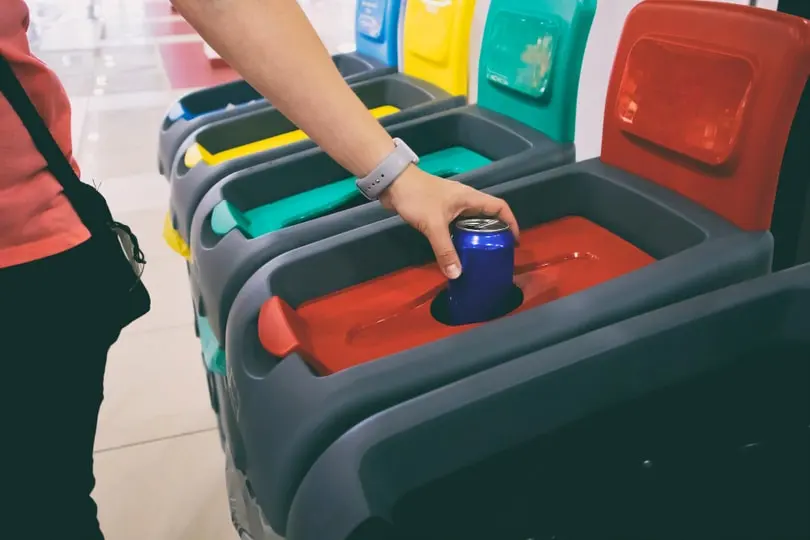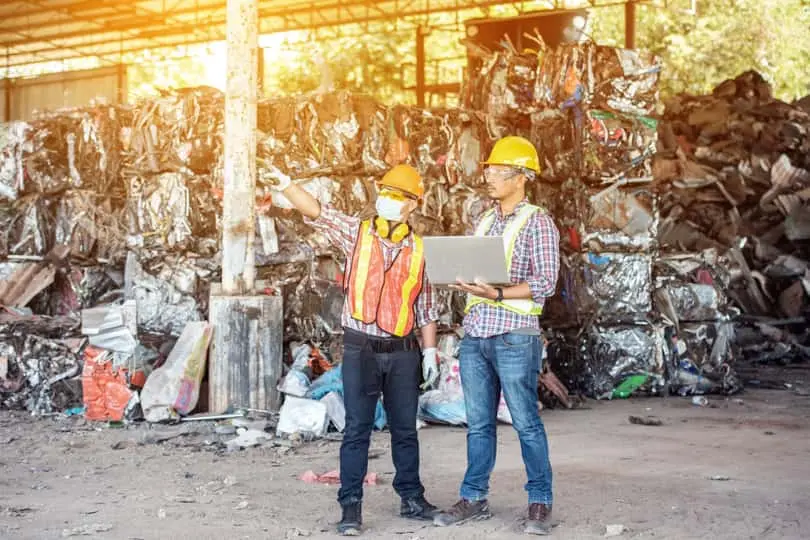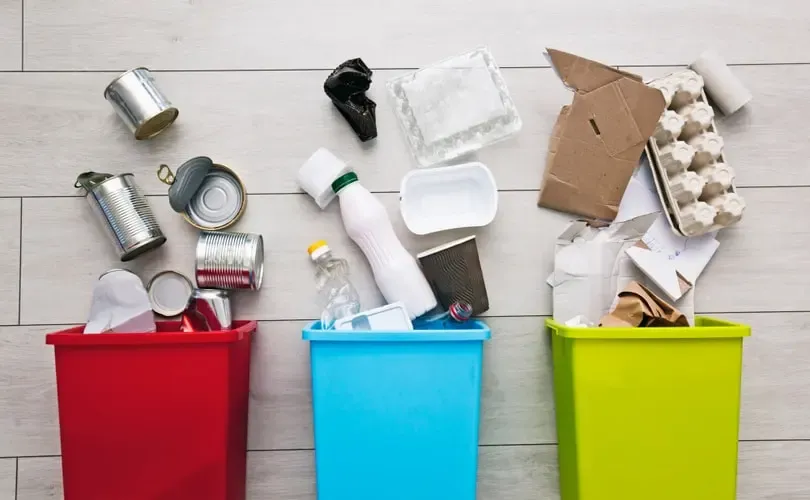7 Types Of Commercial Waste And How To Properly Dispose Them
September 7, 2022
All businesses produce some type of waste, and it's important to know how to properly dispose of it. Each type of commercial waste has its own disposal requirements, so it's important to understand the regulations in your area.
This guide provides an overview of the seven most common types of commercial waste, along with tips on how to handle them.
7 Types of Commercial Waste
1. Recyclable materials
This type of business waste includes paper, cardboard, glass, plastic, and metal. Many businesses choose to recycle their recyclable commercial waste as it is a more environmentally-friendly option than disposal.
2. Hazardous waste
Hazardous commercial wastes include any chemical waste that is flammable, corrosive, toxic, or reactive. This type of waste must be disposed of carefully and in accordance with regulations to ensure that it does not pose a risk to human health or the environment.
3. Non-recyclable materials
Non-recyclable commercial wastes include anything that cannot be recycled such as food waste, nappies, and construction rubble. This type of solid waste is typically disposed of at landfill sites.
4. Electronic waste
Electronic waste, or e-waste, is any unwanted or broken electronic item such as computers, TVs, printers, and mobile phones. Most e-waste contains toxic substances that could damage the environment, therefore, it should not be thrown in general trash.
5. Clinical waste
Clinical waste is any waste that comes from healthcare activities such as hospitals, clinics, and dental surgeries. This type of waste can include used dressings, needles, and swabs. Clinical waste must be disposed of in accordance with strict regulations to ensure that it does not pose hazards of secondary disease transmission.
6. Construction and demolition waste
This type of commercial waste includes any waste generated from the construction or demolition of buildings, roads, and other structures. It can include concrete, bricks, wood, glass, and metal.
7. Food waste
Food waste is any food that is spoiled, leftover, or otherwise not fit for human consumption. It can include fresh produce, prepared meals, plate scrapings, and uneaten food.
Why Manage Commercial Waste?

Commercial waste, if not managed properly, can cause serious pollution problems. Improper commercial waste removal can contaminate soil and water, which can lead to health problems for people and animals. In addition, commercial waste can release greenhouse gasses into the atmosphere, contributing to climate change.
Business owners must know the proper waste disposal methods to reduce environmental harm. If you sort waste into recyclable and non-recyclable materials, this will make recycling easier and more effective. Also, educating your employees on the importance of recycling and proper waste management will help to ensure that your business is doing its part to reduce pollution.
How to Properly Dispose of Commercial Waste
1. Recycling
Recycling is the process of turning waste into new products or materials. Many businesses choose to recycle their commercial waste as it is a more environmentally-friendly option than disposal. Your company's recycling efforts can make a huge difference in the environment.
When it comes to industrial waste management, the first step is identifying which items or raw materials can be recycled. After that, you should set up recycling bins or dumpsters into which specific waste materials will go.
Construction and demolition wastes can often be recycled or reused. For example, concrete can be crushed and used as fill material, while wood can be chipped and used as mulch or fuel.

Most collectors of recyclable types of wastes have facilities that are capable of handling glass bottles, plastic cups, paper goods such as napkins, and cardboards including boxes. However, some types of commercial waste are more difficult to recycle than others.
Styrofoam is one type of commercial waste that is difficult to recycle. Styrofoam is made from expanded polystyrene, which is a type of plastic. Expanded polystyrene is not easily recyclable because it is not biodegradable. Furthermore, styrofoam takes up a lot of space in landfills.
Another type of difficult-to-recycle commercial waste is electronic waste. Electronic waste, or e-waste, includes items such as computers, printers, and televisions. E-waste is problematic because it contains harmful toxins that can leach into the environment. Furthermore, recycling e-waste is often costly and difficult.
2. Incineration
Incineration is the process of burning waste to produce energy. This method of disposal is typically used for hazardous and non-recyclable waste as it reduces the volume of waste that needs to be disposed of. However, this method has many restrictions as it thwarts the efforts of reducing greenhouse gas emissions.
3. Landfill
Landfilling is the process of burying waste in the ground. This method of disposal is typically used for non-recyclable and clinical waste materials. It is the most common method of waste disposal in America.
Landfills are designed to hold non-hazardous, non-recyclable, and non-compostable waste. If commercial waste is sent to a landfill, it will take up valuable space and release harmful gasses into the atmosphere.
4. Composting
Composting is the process of breaking down organic waste into a nutrient-rich soil amendment. This method of disposal is typically used for food waste and other organic commercial waste.
Composting is a great way to reuse and recycle your kitchen waste. This process turns organic matter into fertilizer that can be used by plants, most food scraps are compostable with the exception of certain types like meat or milk cartons since they could carry diseases.
Food waste should not be disposed of in landfill sites as it will decompose and produce methane, a greenhouse gas. Instead, food waste can be composted or used to feed animals.
You should take full responsibility for disposing of commercial waste in a safe and responsible manner. Failure to do so can result in heavy fines and penalties.
When disposing of commercial waste, consider recycling services and other more environmentally-friendly options first. If landfill or incineration is the only option available, you should ensure that you comply with all relevant regulations.
Proper disposal of commercial waste is important for many reasons. It helps to protect the environment, reduces the number of resources used, and can save money in the long run.
If you’re not sure how to properly dispose of your commercial waste, contact your waste management company or recycling center for more information.
Best Commercial Waste Practices For Your Business

1. Do a waste audit
To ensure that your company is handling and disposing of all wastes consistent with local and national regulations, it's important first to measure how much commercial refuse or garbage you produce. You can do this by checking out the contents before recycle bins are collected every week.
After you’ve assessed the kind and quantity of commercial waste produced, it’s time to take simple yet effective actions in handling them. Here are some steps you can take:
- Educate your staff on proper waste disposal and be strict with it.
- Organize a process on how to sort and store garbage in designated waste bins.
- Create a waste disposal plan and choose a hauler that fits your business needs.
- Work on steps to reduce costs like recycling more and sending less garbage to landfills.
2. Reduce waste
The best way to make your office environment-friendly is by ensuring that less waste goes into the landfill. Not only does this have vast economic benefits, but also has positive effects on the environment.
The sad truth is that most of what ends up being sent off in landfills isn't organic and takes years or even decades before it decomposes. To reduce or better yet eliminate your contribution to this bad practice, you could take these steps:
- Reuse materials and identify which are worth selling instead of simply being thrown away.
- Reduce single-use items. Whenever possible, avoid using disposable materials such as cups, plates, and utensils. If you do use disposable products, look for items that are made from recycled materials.
- Promote recycling programs where possible instead.
3. Contact the right hauler
After assessing your business's waste and singling out what can be salvaged, you should contact the relevant contractors who handle such materials.
To get the right hauler, consider the following criteria:
- What is the usual pickup schedule?
- What types of disposal and recycling processes do they provide?
- How much is the overall cost of the service?
- What’s included in the collection plan?
- Any other commercial waste collection services they offer?
- Which service locations do they cater to?
- Do they offer sustainable waste collection services?
Make sure that they're able to work with all types of recyclables. Not all contractors have dedicated resources for handling different types of commercial wastes.
Taking Care of Commercial Waste With Haulla
If you need a professional hauler that specializes in the type of commercial waste that your business produces, Haulla is the solution for you. We provide waste collection and disposal services for local businesses. We can drastically cut prices without sacrificing service quality.
Are you ready to get rid of your commercial waste in the most efficient, affordable, and environment-friendly way? Then get a FREE quote!
